Europe's soft war in Libya
Adelina Marini, March 16, 2011
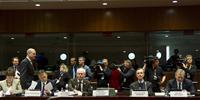 For several days I feel very much bifurcated in my opinion of the decision the EU leaders took at their Extraordinary European Council on Libya on Friday, March 11th. There, in spite of the discord, the 27 heads of state and government ultimately came up with joint conclusions, in which they firmly state that colonel Gaddafi must immediately relinquish power, that his regime had lost all legitimacy and can no longer be an interlocutor for the European Union. Moreover, the Union "welcomes and encourages the interim transitional national council based in Benghazi which it considers a political interlocutor", is written in the final document.
For several days I feel very much bifurcated in my opinion of the decision the EU leaders took at their Extraordinary European Council on Libya on Friday, March 11th. There, in spite of the discord, the 27 heads of state and government ultimately came up with joint conclusions, in which they firmly state that colonel Gaddafi must immediately relinquish power, that his regime had lost all legitimacy and can no longer be an interlocutor for the European Union. Moreover, the Union "welcomes and encourages the interim transitional national council based in Benghazi which it considers a political interlocutor", is written in the final document.
One way, but who should be the driver?
After 20 years of transition in the countries in Central and Eastern Europe, democracy in Bulgaria practically has not taken place yet. By the way, the strife for democracy here was never that strong as in some other countries in the region. What Europe did not see or never bothered to see was what pseudo democratic forces it entrusts to perform the transition to free, market-oriented and democratic state. Currently the results in Bulgaria are desperate - slipping for years reforms, not good economic perspectives, ageing population, a new wave of strong outward immigration, lack of well prepared political leaders, no alternative.
Precisely from this point of view I found a little hasty the decision of the European Union to support the Libyan National Council that consists to a large extent of former members of Muammar Gaddafi's clique. People who decided in the beginning of the uprising to distinguish themselves from their leader and join the 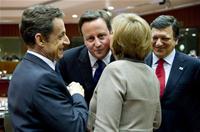 opposition. Under strong pressure from France and Britain, who sent a joint letter to their colleagues on the eve of the extraordinary Council, the EU ultimately decided to support this alternative of Gaddafi. The European Parliament also insisted on this before the summit.
opposition. Under strong pressure from France and Britain, who sent a joint letter to their colleagues on the eve of the extraordinary Council, the EU ultimately decided to support this alternative of Gaddafi. The European Parliament also insisted on this before the summit.
Quite logically the colleagues in Brussels raised the issue at the press conference on Friday by asking on what grounds the European Union had decided to rely on the Libyan national council, despite the fact that it consists of many people from the regime. To this European Council President Herman Van Rompuy said that he had a brief meeting with a delegation of the transitional Libyan council. Such meetings were held too by HR for Foreign Policy Catherine Ashton, French President Nicolas Sarkozy and other leaders. "They took a very courageous decision to break of Gaddafi and some of them are even risking their lives. Of course the proof of the pudding is in its eating. We have to be logical. The Council is a reliable interlocutor in our view", Herman Van Rompuy concluded.
Of course, purely strategically, Libya is important to the European Union for many reasons, among which - resources, immigration, security. Common sense requires that the EU must do exactly as it did - to support the first possible alternative in order to gain more time for regrouping of forces and to avoid deterioration of the situation. Meanwhile, there is already some preparedness for military action and the UN Security Council is the scene of bitter disputes on the issue of imposing a no-flight zone over Libya.
In support to "common sense" EU leaders point out in their conclusions that "all countries in the region need to undertake or accelerate political and economic reforms. The European Union will support all steps towards democratic transformation, political systems that allow for peaceful change, growth and prosperity, and a more proportionate distribution of the benefits of economic performance". Precisely this formulation explains why personal feelings, with which I have started this article, do not matter.
As Bulgaria practically has the formal foundation that enables citizens to choose competent governance that would lead them forward, the same way people in Libya could have the same opportunity if they would go on the path of democratic transformation. Whereto this is their choice. This is the philosophy behind the difficult decision of EU leaders on Friday.
The mistakes surrounding the Bulgarian position
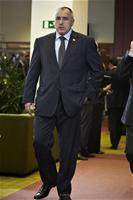 Bulgaria, in fact, was one of the opponents of the idea the EU to support the transitional Libyan council. Prime Minister Boyko Borissov explained that members of the council were among the torturers of the Bulgarian medics, held captive in a prison in Benghazi for 8 years accused of deliberate infection of nearly 400 Libyan children with AIDS. An accusation that was later proved to be ill-grounded. However, two mistakes were made related to this position. One was made by the Bulgarian premier himself and the other consists of a wrong interpretation by some media.
Bulgaria, in fact, was one of the opponents of the idea the EU to support the transitional Libyan council. Prime Minister Boyko Borissov explained that members of the council were among the torturers of the Bulgarian medics, held captive in a prison in Benghazi for 8 years accused of deliberate infection of nearly 400 Libyan children with AIDS. An accusation that was later proved to be ill-grounded. However, two mistakes were made related to this position. One was made by the Bulgarian premier himself and the other consists of a wrong interpretation by some media.
According to the EUobserver, French President Nicolas Sarkozy's pressure for the recognition of Libyan rebels caused the anger of Bulgaria, as according to Sofia key members of the Libyan transitional council were closely connected to the torture of the six Bulgarian medics, held captive in the country in the last decade. The quote of Mr Borissov, used by the website, reveals the first mistake of the prime minister: "I explained [to EU leaders] that representatives of this council in Benghazi are the people who tortured the Bulgarian medics for eight years and that this cost us nearly $60 million".
If he indeed said this to the French leader, the prime minister had obviously forgotten that it was Sarkozy who contributed to the release of the medics and Libya was paid a much greater amount of money - approximately $400mn (almost a million per infected child) by Qatar. The money Mr Borissov is talking about, approximately $60mn, is in fact Libyan debt that has been waved by Bulgaria.
The EUobserver also reports that Romanian President Traian Basescu too echoed doubts over the rebels' credentials during the EU leaders' discussion, causing an angry outburst from Sarkozy and leading German Chancellor Angela Merkel to call for calm. Here is the mistake the medium makes by reporting that Romania and Bulgaria are unhappy with French resistance to both countries' efforts to join the Schengen area of security.
Undoubtedly both countries strive for Schengen and are unhappy not only with the French resistance but also with the coalition agreement of the Dutch government. It is a fact, though, that unlike Romania, Bulgaria has serious reasons to doubt the success of the interim Libyan council that consists of people who participated directly in the worst hostage drama of Bulgaria.
The pact for democratic development of the South Mediterranean
Around the hammering out of the European position on the events in Libya there was some resonance in the system of European unity, but ultimately when reading the conclusions from he Extraordinary European Council on Libya, which by the way are unexpectedly long (6 pages), inclines on thinking that in spite of the strong pressure of some member states, after all synchronous had been achieved as most of the demands of the major players had been taken into account.
Although this was not the main issue, it is written in the conclusions that in the mid-term the European Council (the member states) call for a new partnership with the region and this is why it "broadly welcomes" the joint communication of the Commission and the High Representative for the Partnership for Democracy and Shared Prosperity with the South Mediterranean, based on a differentiated and incentive-based approach - as it is precisely stipulated in the Commission's proposal.  "Such a partnership should also be founded on deeper economic integration, broader market access and political cooperation", is also noted in the conclusions. The leaders also call for new proposals to reform the European Neighbourhood Policy.
"Such a partnership should also be founded on deeper economic integration, broader market access and political cooperation", is also noted in the conclusions. The leaders also call for new proposals to reform the European Neighbourhood Policy.
It is also noted in the document that member states are most directly concerned by migratory movements that "require our concrete solidarity". The EU and the member states are ready to provide all the necessary assistance according to the evolving situation. Besides, all member states are invited to provide additional resources, including human resources, to Frontex (the European border control agency).
The spirit and the tone of the conclusions reflect the enhanced coordination between the EU and NATO too, as the ministers of defence of the latter also met on Thursday on Libya. In the end of the day, however, everything will depend on the decisions Muammar Gaddafi and his supporters would make against the backdrop of growing pressure on US President Barack Obama to undertake tougher actions. He, however, as it seems, is more inclined to leave this issue in the hands of Europe which is closest to the situation. Apparently the United States no more can or do not want to, or do not deem it necessary to be the global gendarme, especially in Europe's neighbourhood. So, farewell illusions, it is time whoever wants democracy to work for it. The EU is always ready to help but not to do the entire job.
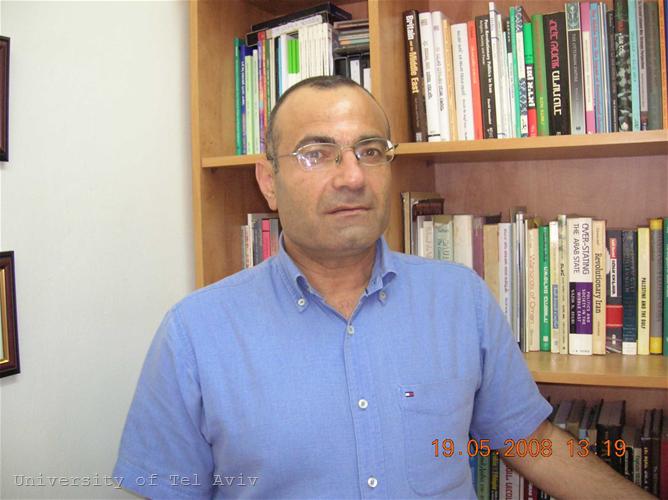 | © University of Tel Aviv
| © University of Tel Aviv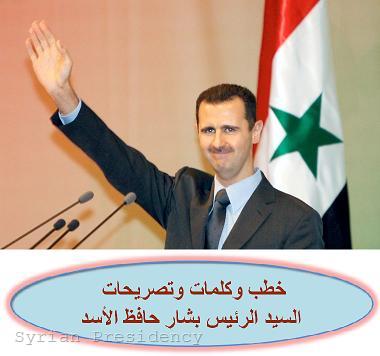 | © Syrian Presidency
| © Syrian Presidency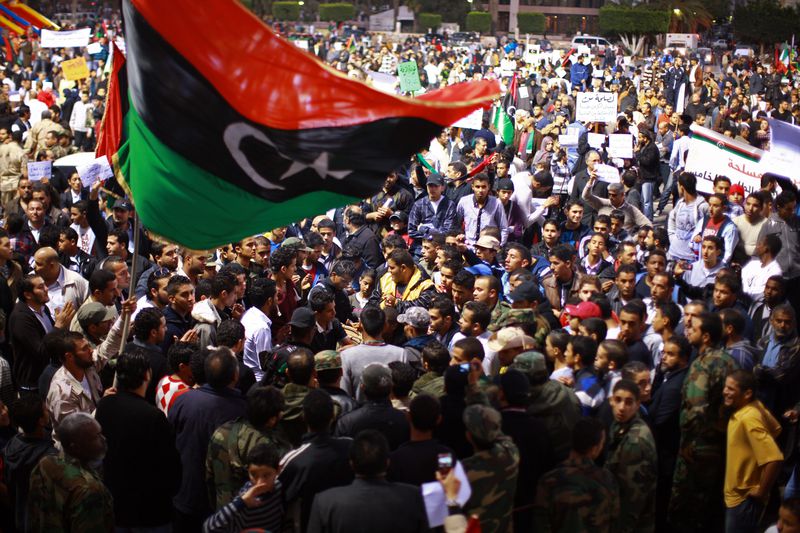 | © UN
| © UN